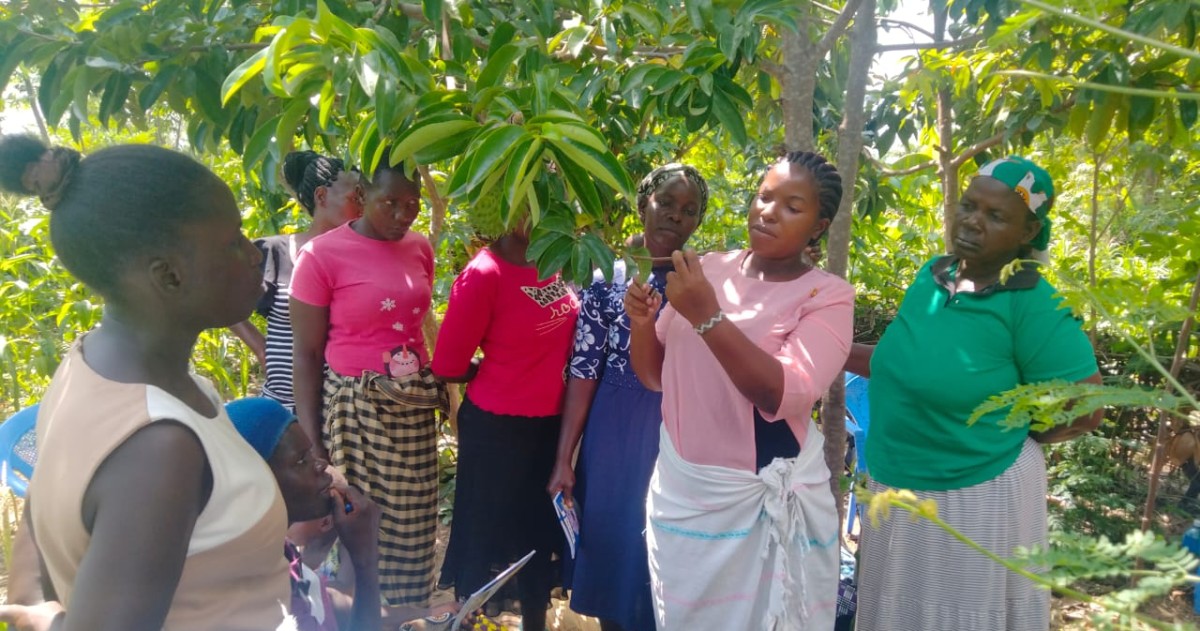Bill McGuire is Word Forest’s Special Scientific Advisor and Professor Emeritus of Geophysical and Climate Hazards at UCL. He was a contributor to the 2012 IPCC SREX report on climate change and extreme events.
There is much that needs to happen if we are to successfully tackle the climate emergency, from making energy supplies carbon-free and switching to greener transport systems, to changing our lifestyles so that we eat far less meat and ensure that the individual choices we make are the best ones for our planet.
Equally importantly, we need to plant trees – lots of them and as fast as we can.
Along with plankton in the oceans, trees make up the lungs of our planet. Without them, carbon dioxide levels in the atmosphere would be far higher, global heating far more advanced and all humans and wildlife would struggle to survive.
Without good wardenship, healthy saplings abandoned by those who planted them are essentially being left to sink or swim! With increasingly common wildfires the world over and violent competition to find grazing lands in Kenya causing problems too, it’s easy to come to the realisation that many of those saplings are highly likely to sink!
The singular act of planting trees alone just won’t cut it. Saplings need to be protected and well managed, particularly in the early days when they’re setting down their roots and this is where Word Forest comes into its own. With a focus predominantly on fast growing trees in Kenya – many of which are selected for their additional bonus food producing capabilities – this charity absolutely has the right idea: plant as many trees as possible and critically, support the people who plant them via a wide range of humanitarian initiatives, and education.
Word Forest works with indigenous teachers in Kenya who help pupils young and old improve their understanding of a wide range of subjects, from ABC 123, permaculture, organic growing, syntropic agroforestry and how to generate an income to environmental lessons on climate change and more besides.
It’s a winning combination and despite the modest size of their UK workforce and the challenges of being a young charity, they continually punch above their weight. They show strong leadership in the face of meteorological adversity and they don’t shy away from the complexities of their multi-layered approach to mitigating global warming. In short, their work is helping to reduce inequality, gender bias, hunger, poverty and avert climate catastrophe – bravo! Moreover, their attitude is positive and their hunger to collaborate, particularly with corporate partners and other charities, is insatiable.
If Word Forest’s model were replicated worldwide, it would carry vast potential to (a) significantly impact the climate emergency and (b) whack a serious dent in the side of poverty and hunger (most especially where they’ve gained knowledge and experience of what works well in sub-Saharan Africa). However, for this to happen there would need to be massive support emanating from governments the world over: there are no signs yet of easily accessible assistance, at scale, being particularly forthcoming.
The bottom line is this: neither governments, nor those who elect them, are sufficiently scared enough of global heating, or the plethora of horrors that resulting climate breakdown is set to deliver to us all.
I am pretty sure that if a poll were held today to determine what percentage of the population was terrified by the prospect of dangerous climate breakdown, the number would be pretty small. Plenty of people would likely say they were concerned, quite a few would probably admit to being seriously worried but terrified, no, not many and herein lies the problem.
In recent years, some within the climate science community – and many outside it who make a living creating chaos and/or news – have called out those who continue to highlight the colossal threat presented by global heating, as peddlers of climate porn.
One eminent climate scientist warned recently that we should avoid using such terms as ‘shocking, terrifying or devastating’ when describing climate breakdown, for fear of inducing ‘denial, paralysis and apathy’, thus compounding the communication problem.
This is wrong on so many levels that it’s difficult to know where to start to address it.
The truth is we’re at the heart of a crisis situation that has the potential to tear apart global society and economies, within decades. Belittling the dire straits we find ourselves in will do nothing to help us tackle the climate emergency we share and are about to face, head on.
Instead, it will inevitably foster the idea that things aren’t actually too bad. So, it might get a bit hotter, the weather might be a little wilder, but it’ll be nothing we can’t cope with…
This is, of course, completely untrue. Our once stable climate moves into a state of rapid disintegration, no one will be insulated from the mayhem this will bring in the decades that lie ahead.
It is now practically impossible to keep this side of the 1.5°C dangerous climate change guardrail but if we are to have any chance at all of reining in runaway global heating, we need to see widespread drastic actions being taken right now, today, this minute.
I fear the only way we are going to achieve it, is if the blackout veil covering the eyes of the general public is pulled back to reveal the awful future their children are highly likely to grow old in and their grandchildren will grow up through.
In order for this to happen, climate scientists the world over need to tell it like it is: uncut, uncensored and unequivocally with great urgency.
We need, in other words, to strike necessary terror to evoke necessary action. Fear may, in certain circumstances, paralyse some, but more often it drives unity and action. We only have to look at the widespread supportive response for the Ukrainian people to the Russian invasion, for confirmation of this.
Fear makes adrenaline levels surge, which in turn frequently actuates an innate and irrepressible urge to fight. We have never experienced such a need for powerful collaborative climate action, as we do today.
Telling it like it isn’t being alarmist – far from it. Indeed, whether it is actually possible to paint a picture that is inherently bleaker than our forthcoming reality, is a moot point.
The fact is, if we want to see entire populations rise up and demand serious action from their governments and respective Big Corps – which is precisely what many climate scientist colleagues and I feel we need… and soon… then we probably do need people to feel that palpable fear, to be scared, really scared, not slightly concerned but scared and active!
As philosopher and climate activist, Rupert Read, wrote to me recently: ‘Grim is good’. As Read stresses in his forthcoming book, ‘Why Climate Breakdown Matters’, we are not spectators watching climate catastrophe unfold, we are all agents who have the power to alter it.
We have the ability and opportunity to engage with others and to make a difference, but this will only happen if enough people understand the magnitude and gravity of the problem and are scared enough to act.
This will never, however, be the case as long as climate scientists – and those who work on monitoring, measuring and estimating the impacts of future climate breakdown – tip-toe around the issue and rein in their language.
In many ways, doing so is only marginally better than denying the existence of global heating, acting as that does to appease concerns for the impacts of climate breakdown in the decades ahead.
Let’s not beat about the bush here, climate breakdown is a catastrophe. Soon, it will be all pervasive, affecting everyone on the planet and insinuating itself into every aspect of our lives. This is well demonstrated (predicted?) by a single statistic: by 2050, an increasing global population will drive the demand for food up by one half, while at the same time, agricultural yields could be down by as much as one third.
Discounting all other impacts of global heating, this – in itself – is surely enough to drive wholesale starvation and widespread civil strife.
So, be scared, be terrified but don’t let this foster inertia or fuel inaction. Embrace your fears and use them to galvanise positive action instead!
If you feel a compulsion, a need almost to join with others in peaceful public protest, then do so! There are enough environmental causes up and down the country attracting people from every walk of life to choose from. If this isn’t to your taste there’s still plenty you can do. Create, sign and share eco-petitions. Drive an electric car, or better still use public transport or walk or cycle more. Stop flying willy nilly. Switch to a proper green energy tariff (when we’re allowed to shift again that is) and eat far less meat, maybe consider no meat! Choices of plant-based foods are rising exponentially evidenced by the ever expanding veggie and vegan options in our supermarkets and restaurants.
The best foods are, of course, those organically reared on our windowsills, gardens and in our local communities. Fruit and veg offer us the lightest plate print too, as Word Forest CEO Tracey often reminds me. She and her husband Simon shifted to a fully plant-based lifestyle 7 years ago when they realised the gravity of our planet’s situation: that’s a positive choice for the planet, in action!
Spread the word about our climate catastrophe among your family, friends and colleagues. Join Word Forest as a member and if you wish to mark special occasions with a gift, buy Certificates of Tree Planting to do so. Lobby your elected representatives at both local and national levels and for goodness sake, use your vote wisely to put in power a government that – when it comes to our shared climate crisis – actually walks the talk.
Only then can we ditch the fear.
Until then, let’s harness the power of it instead.
Professor Bill McGuire
Bill’s most recent novel, Skyseed, is an eco-thriller about climate engineering gone wrong. His new book, Hothouse Earth: an Inhabitant’s Guide (as featured on his LinkedIn profile) will be out in August 2022. Click here to find a local independent bookshop near you to place your orders for these and Bill’s other works. New website coming soon.





